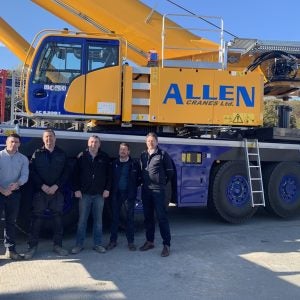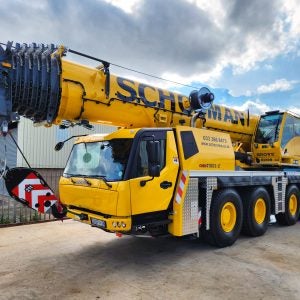I do a lot of residential and light commercial work. Steel placement, prefabricated roof trusses, HVAC equipment, etc., the same things that others in the small end of the industry do. It has been my experience in 26 years of operation that a great percentage of the people that hire a crane for a few hours or a day have little or no idea how to use a crane safely. I would guess in the 50-60% range. Many of the people I work with do not know good rigging practices, how to signal a crane properly or how to leave enough room on site for a crane to be safely set up. The only way they get by is because many of them have only one specialty and the few things they know have simply sunken in through repetition and (usually) the crane operator can see enough to stop them from doing the overtly stupid. People are lulled into complacency when things go well. I regularly have to stop operation and wait for someone to realize they need to signal me when lifting into a blind area. For some reason, crane operators are supposed to have Superman eyes that see through all obstructions. In talking to clients about new rules on the horizon for operators, signal men and riggers, I have found that they don’t know anything about any upcoming changes, and they don’t care to know unless they get slapped in the face with an inspection or fine.
The hourly cost of a crane is all that matters to some. A rental crane is like a commodity- what is the cheapest thing I can get? I have battled this mindset my whole career. With approximately 45,000-50,000 hours of crane operation, I have had no safety issues, to date. Is there a value to be placed on this? I think there is. Is a certification card in my pocket going to improve on this? Questionable. I have learned to say no to things that I don’t feel are safe or even to people that call and strike me as not having a clue what they are talking about. One of the most common questions my wife receives when she answers the phones is “How much is it to get a crane?” When she asks what size, most are at a loss. If she gets technical and asks how much the item weighs, how far must the crane reach or what the crane is to do onsite, many callers go absolutely clueless.
Chuck Mostert
Mostert Cranes and Equipment
Prescott Valley, Arizona, USA






